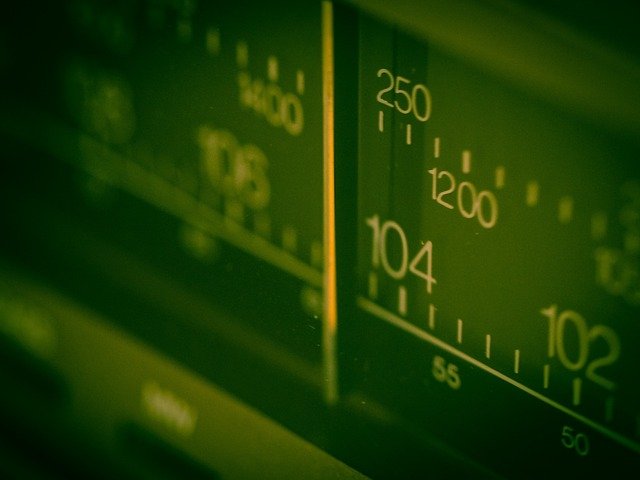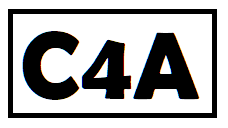Why Use Our Frequency Converter?
Converting frequency units can be confusing, especially when dealing with different scales like Hertz, Kilohertz, Megahertz, Gigahertz, Terahertz, and more. Our frequency converter simplifies this process by providing accurate and instant conversions between these units. Whether you’re a student, professional, or just someone who needs to make quick calculations, our tool is designed to meet your needs.
Key Features of Our Frequency Converter
- Wide Range of Units: Convert between Hertz, Kilohertz, Megahertz, Gigahertz, Terahertz, and more. Our comprehensive list of units ensures you have everything you need for any conversion task.
- Instant Results: Get immediate conversion results as you type, making it easy to work with precise measurements. No more waiting for calculations; our tool provides real-time feedback.
- User-Friendly Interface: Our intuitive design ensures that anyone can use the converter effortlessly. Simple controls and clear labels make navigation a breeze.
Understanding the Units
Here is a brief explanation of each unit available in our frequency converter:
Hertz (Hz)
The Hertz is the SI derived unit of frequency, named after the German physicist Heinrich Hertz. It is defined as one cycle per second.
Kilohertz (kHz)
The Kilohertz is a multiple of the Hertz, equal to \(1,000\) Hertz. It is commonly used in audio applications.
Megahertz (MHz)
The Megahertz is a multiple of the Hertz, equal to \(1,000,000\) Hertz. It is widely used in radio frequency applications.
Gigahertz (GHz)
The Gigahertz is a multiple of the Hertz, equal to \(1,000,000,000\) Hertz. It is used in high-frequency radio and microwave applications.
Terahertz (THz)
The Terahertz is a multiple of the Hertz, equal to \(1,000,000,000,000\) Hertz. It is used in advanced radar and imaging systems.
How to Use the Frequency Converter
Using our frequency converter is simple. Just follow these steps:
- Enter the value you wish to convert in the “From” field.
- Select the unit of the value you entered from the dropdown menu next to the “From” field.
- Choose the unit you want to convert to from the dropdown menu next to the “To” field.
- The converted value will appear automatically in the “To” field.
Additional Tips
If you need to switch the units, simply click the “Switch” button. This will swap the “From” and “To” units, allowing you to perform the conversion in reverse.
To start over, click the “Clear” button. This will reset all fields, making it easy to begin a new conversion.

Follow us on Facebook for more updates.
Contact us at office@calculator4all.com.
The Importance of Accurate Frequency Conversions
Accurate frequency conversions are crucial in many fields, including engineering, science, telecommunications, and electronics. Using the wrong unit or making a calculation error can lead to significant mistakes and costly consequences. In engineering projects, for example, a small error in frequency measurement can result in inefficient systems. In telecommunications, incorrect frequency settings can disrupt signal transmission.
Our frequency converter helps ensure precision by providing reliable and up-to-date conversion formulas. Whether you’re working on a small project or a large-scale endeavor, our tool can help you achieve accuracy. Trust our converter to handle all your frequency conversion needs with ease.
Complex Explanation and Examples
Frequency conversion involves changing the unit of measurement for frequency while maintaining the same quantity. The relationship between different frequency units can be expressed mathematically. Here are some examples:
Example 1: Converting Hertz to Kilohertz
Suppose you have a frequency of \(5000\) Hertz and you want to convert it to Kilohertz.
\[ \text{Kilohertz} = \frac{\text{Hertz}}{1000} \] \[ \text{Kilohertz} = \frac{5000}{1000} = 5 \text{ kHz} \]Example 2: Converting Megahertz to Hertz
Suppose you have a frequency of \(2.5\) Megahertz and you want to convert it to Hertz.
\[ \text{Hertz} = \text{Megahertz} \times 1000000 \] \[ \text{Hertz} = 2.5 \times 1000000 = 2,500,000 \text{ Hz} \]Example 3: Converting Gigahertz to Terahertz
Suppose you have a frequency of \(0.75\) Gigahertz and you want to convert it to Terahertz.
\[ \text{Terahertz} = \frac{\text{Gigahertz}}{1000} \] \[ \text{Terahertz} = \frac{0.75}{1000} = 0.00075 \text{ THz} \]Conversion Factors
The conversion factors between different frequency units are as follows:
\[ \begin{align*} 1 \text{ Hz} &= 1 \text{ Hz} \\ 1 \text{ kHz} &= 1000 \text{ Hz} \\ 1 \text{ MHz} &= 1,000,000 \text{ Hz} \\ 1 \text{ GHz} &= 1,000,000,000 \text{ Hz} \\ 1 \text{ THz} &= 1,000,000,000,000 \text{ Hz} \end{align*} \]These conversion factors are used in the formula:
\[ \text{To Value} = \text{From Value} \times \text{Conversion Factor} \]Benefits of Using Our Frequency Converter
There are numerous benefits to using our frequency converter:
- Time-Saving: Save valuable time by avoiding manual calculations and potential errors.
- Accuracy: Ensure precision with reliable conversion formulas.
- Accessibility: Use the converter from anywhere with an internet connection.
- Versatility: Handle a wide range of units, making it suitable for various applications.
Real-World Applications
Our frequency converter has practical applications in many real-world scenarios:
- Engineering: Precise frequency measurements are essential in designing and operating systems and processes.
- Science: Scientists rely on accurate frequency measurements for experiments and research.
- Telecommunications: Correct frequency settings are crucial for signal transmission and reception.
- Electronics: Electrical engineers need accurate frequency measurements for circuit design and analysis.
- Radio Frequency: Radio frequency applications require precise frequency measurements for optimal performance.
Conclusion
Converting frequency units doesn’t have to be difficult. With our frequency converter, you can easily switch between Hertz, Kilohertz, Megahertz, Gigahertz, Terahertz, and more and obtain accurate results every time. Try it out today and experience the convenience of precise measurements. Whether you’re a professional or just someone who needs to make quick calculations, our tool is here to help.
